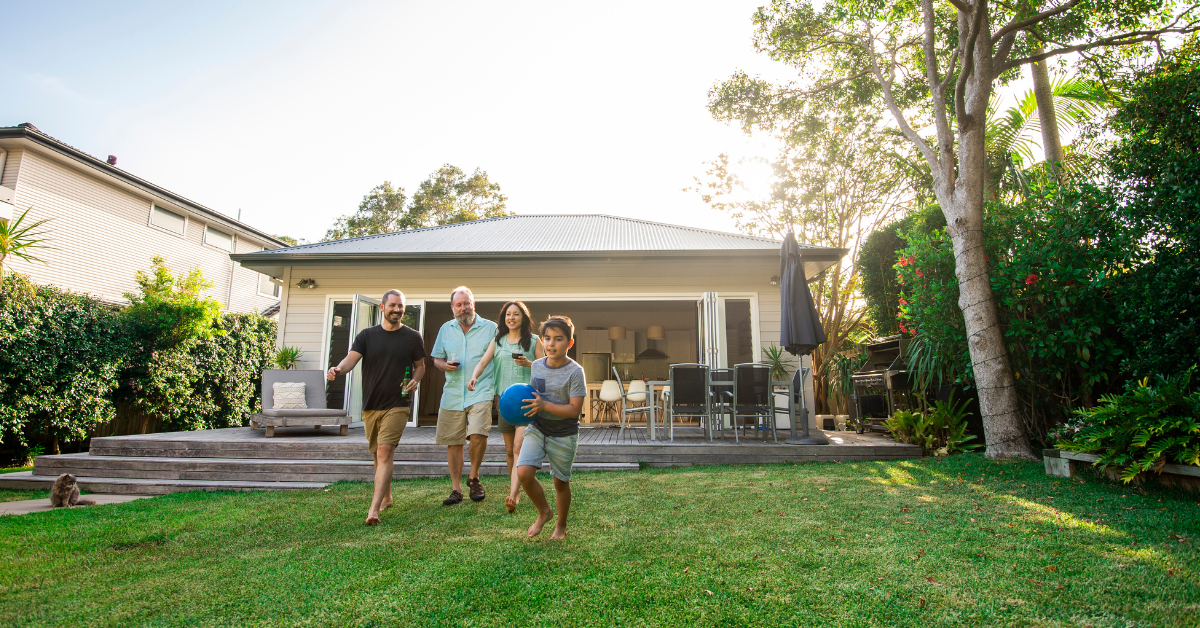Can You Build Wealth Without Owning a Home?
While it may feel more difficult than ever to build wealth without owning a home, there are plenty of smart strategies you can use to start building that nest egg.
If death and taxes are the only certainties in life, then debating real estate prices surely runs a close third.
That’s especially the case in Australia, where investing in property has always been viewed as a surefire way to build intergenerational wealth.
For younger Australians looking to break into the housing market today, however, it’s easier said than done.
That’s because in 1984, to use one example, the average home buyer needed to fork out around 3.3 times their annual income to purchase a home.
Today, that average annual income hovers around $90,000 per annum, while the average home costs more than $900,000—and often vastly more in cities like Sydney and Melbourne.
That means the average Aussie worker now needs to fork out more than 10 times what they earn just to get a foothold in the housing market.
Which means that slowly climbing the property ladder is no longer the tried and tested wealth-building strategy it once was.
But despite the fact that breaking into the property market is arguably tougher today than at any time in recent history, there are plenty of strategies you can use to start building wealth that don’t rely on owning a home.
Such as? Here are 5 simple ways to start building wealth that don’t revolve around property.
Invest in the Stock Market
The simplest route to building personal wealth without owning a home is also the most obvious.
It may sound simplistic to say ‘start with shares,’ but the truth is that equities have outperformed virtually every other asset class in terms of returns—even allowing for the usual stock market fluctuations.
Investing in the stock market remains both an accessible and strategic method of building wealth, particularly over the long term.
Here are some key points to consider:
- Start with ETFs and Managed Funds: Exchange-Traded Funds (ETFs) and managed funds can be excellent starting points for beginners.
ETFs, in particular, offer a diverse portfolio and are traded like individual stocks, combining the benefits of stocks and mutual funds. Managed funds, although potentially commanding higher fees, provide the advantage of a professionally managed option.
- Make the most of Dividend Reinvestment Plans (DRIPs): These are plans that allow investors to reinvest their dividends into additional shares, compounding their investment over time without the need to invest more capital.
- Stay informed… and diverse: Keeping up to date with market trends and diversifying your investment portfolio across different sectors, industries, and even geographical locations can help spread the risk.
Consider Alternative Opportunities
Beyond the Australian Stock Exchange (ASX) and overseas markets, there are a range of alternative investments options available that can help diversify your portfolio and build wealth.
Some of these options present a higher risk than others—particularly when it comes to cryptocurrencies—but a diverse portfolio that mixes a range of investment assets can undoubtedly help build wealth over the long term.
Some alternative investment opportunities include:
- Real Estate Investment Trusts (REITs): For those interested in property without the commitment of direct ownership, REITs offer exposure to real estate markets through a tradable stock-like format.
- Peer-to-Peer Lending (P2P): P2P platforms allow individuals to lend money directly to others or small businesses, earning interest income in return. This can be an effective way to achieve solid returns, albeit with a higher-risk profile.
- Cryptocurrencies and NFTs: Although highly speculative and prone to volatility, cryptocurrencies and digital assets such as Non-Fungible Tokens present a modern investment frontier with the potential for significant returns.
Like any investment, it’s worth consulting your Prime wealth advisor before taking the plunge and committing your hard-earned cash to less traditional investment opportunities.
Harness the Power of a Side Hustle
Younger Australians—particularly those looking to build wealth without owning a home—know all about the income-boosting power of side hustles.
For the unaccustomed, a side hustle is simply an activity undertaken outside of full-time work hours and designed to bring in extra income.
It’s similar to the traditional second jobs of old, but usually one that can be performed from home or which otherwise leans heavily into a specific passion.
Some side hustles—like buying and re-selling vintage clothes on e-commerce marketplaces like eBay and Etsy, or designing and selling in-demand online courses—can be so lucrative, they turn into full-time jobs in their own right.
But with young Australians embracing everything from dog-walking on weekends to tutoring high school students after school—not to mention the whole spectrum of e-commerce—taking on a side hustle and sticking with it is another simple strategy to build wealth.
Cut Costs With Financial Discipline
Netflix. Disney+. Stan. Binge. Amazon Prime. Apple TV. Paramount+. These are just the major streaming providers in Australia!
Add Britbox, Shudder, Hayu, or even a YouTube Premier subscription, and pretty soon you’re paying more than $2,000 a year for streaming services alone.
One media outlet even put the total cost for all the premium streaming subscriptions at more than $190 per month!
Combine that with magazine subscriptions, gym memberships, internet and phone accounts, and all those infamous smashed avos, and suddenly you’re thousands of dollars out of pocket.
That doesn’t mean you need to toss your big-screen TV into the nearest rubbish bin.
But with no lock-in contracts—meaning you can pause streaming subscriptions as often as you like—it’s a sensible financial play to simply select one or two streaming providers you plan to watch right now, and cancelling the rest until you really need them.
The same goes with recurring costs around mobile phones, internet connections, and even insurance.
Shop around to find the best price—and remember one of the most effective ways to build wealth with minimal effort is to cut back on unnecessary expenses.
Invest in Your Super… and Yourself
While it may seem counterintuitive to take the money you could be paying into a mortgage and putting it away for retirement, there are proven tax benefits to investing in your superannuation.
That’s because the before-tax concessional contribution limit is $27,500 per annum, meaning any amount you tip in up to this limit is tax deductible.
Most financial experts suggest non-homeowners need up to 40% more superannuation than homeowners in retirement. Which means that investing in super now to afford a comfortable retirement later is one way to build wealth without owning a home.
A more immediate solution is to invest in yourself—in the form of higher education.
Whether that’s through a tertiary qualification or an online course, there are plenty of ways to up-skill and attain new knowledge, and with any luck start climbing the career ladder to more lucrative opportunities.
Talk to Us About Building Your Wealth
At PrimeAdvisory, we’re experts in building personal wealth.
We understand how tough it can be for first homeowners to get into the housing market, so we’ve developed a range of strategies designed to build wealth without owning a home.
Keen to know more?
Drop us a line or call us on +61 02 9415 1511 to find out how we can help.
We make more possible.








